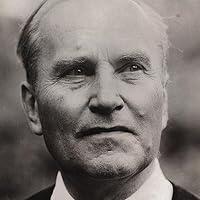
Jan Patočka
Über den Autor
Jan Patočka was a prominent Czech philosopher and one of the key figures in the development of phenomenology in Central Europe. Born in Prague in 1907, he became known for his critical engagement with the works of Edmund Husserl and Martin Heidegger, as well as for his emphasis on the importance of the human experience in understanding existence. Patočka's philosophical inquiries were deeply intertwined with the socio-political context of his time, particularly during the tumultuous periods of World War II and the subsequent communist regime in Czechoslovakia.
Throughout his career, Patočka was not only a philosopher but also an active participant in the political life of his country, advocating for human rights and democracy. He was a co-founder of the Charter 77 movement, which sought to promote civil rights in Czechoslovakia. His work continues to resonate in contemporary philosophy, particularly in discussions surrounding the nature of the human condition and the role of the individual in society. Patočka's legacy is marked by his profound insights into the human experience and his unwavering commitment to truth and freedom.